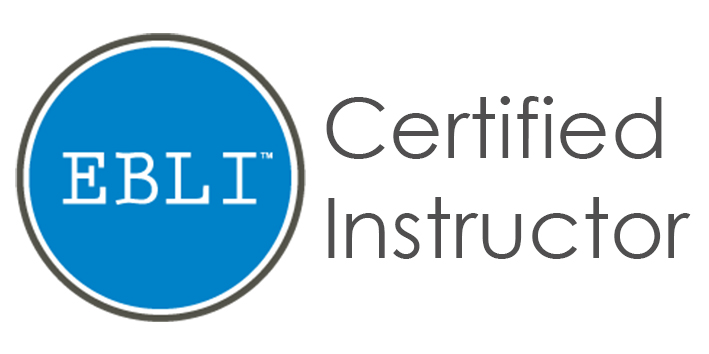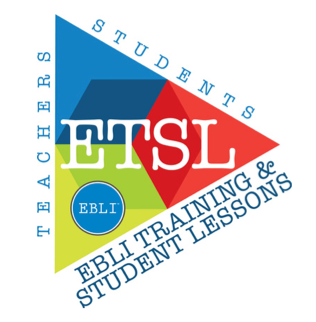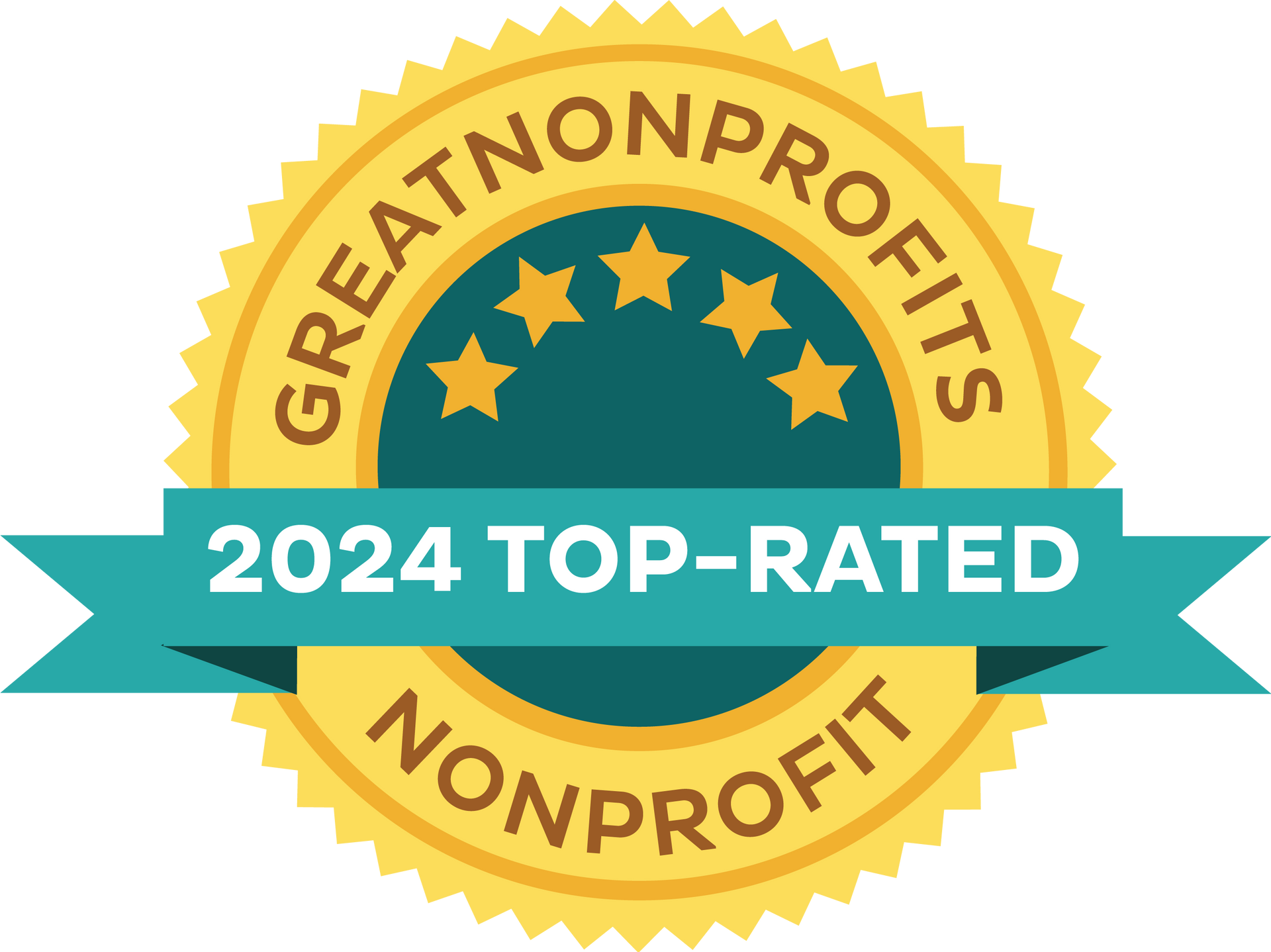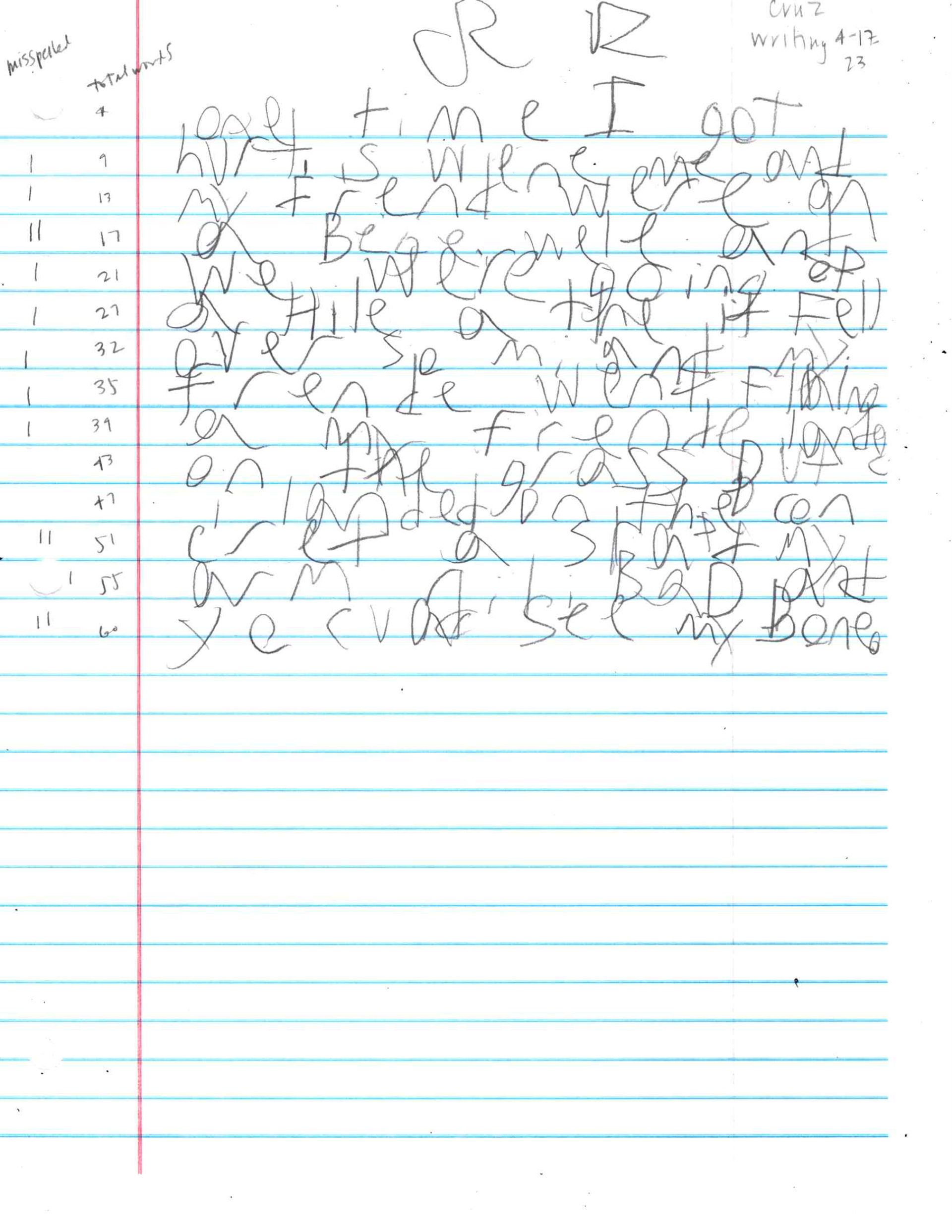

Listen to the Children -
DPS Students on Learning to Read in High School
11 June, 2024
The school year has ended but the urgency around literacy instruction persists in the Structured Linguistic Literacy (SLL) community. For my part, I wrapped up my rewarding time with sub-literate high school students in Denver Public Schools. They shared their thoughts on EBLI compared to the Wilson Reading System. Their quotes are evidence that our kids are not learning quickly enough and are not engaged when taught with an OG-based approach.
Navonte Hoffman, 9th grader. "As a first grader it would be better to learn EBLI than Wilson. You can go at your own speed, Rather than having a lesson that might not apply to you because it's too easy. Wilson makes me feel like I can't do the same as others. When I go home my little six year old sister can do my (Wilson) homework."
Jae Albanez, 10th grader. "I'm a person who learns by using my hands and that is easier than looking at a screen and getting instruction on a screen. I like that EBLI is hands on. Wilson instruction makes me feel small. It makes me feel inadequate."
TJ (Tobias) Quintana, 10th grader. “I like EBLI better than Wilson because it makes me think more. It makes me break up the words to understand them better. In Wilson we have to circle the suffixes and put in breves and doing this doesn’t really help me.”
Elijah West-Duah, 11th grader. "As soon as an elementary teacher notices a young kid struggling with reading, they should pull the kid individually or in groups. They need to spend more time helping them learn how to read. If we don't teach these kids at a young age how to read they'll be stuck in high school learning how to read."
Mikee Brown, 12th grader. "EBLI helped me a lot, over time it helps me read and learn how to sound out words...Say I'm reading a book and I don't know what that word is I'll sound it out and do the things you taught me how to do. And if I don't know how to spell the word I'll do the same thing. It helps me a lot over time. And people that don't know how to read or something or can't spell should learn EBLI. It just helps a lot...The fast pace of EBLI is way better than Wilson. It was slow paced and kind of annoying because we were doing the same thing throughout the weeks. I was like, 'I wish we could learn something new. And she (Ms. G.) was like, 'You'll learn the new syllables and all of this stuff later in the year'... Later in the year we will learn it. It will just take a long time to get there. When you (Ms. Shari) came in, we started to learn all of this stuff. I was like 'We don't have to wait two weeks to learn something new.'"


As a private tutor in Denver,
Shari Most spent twelve years using Orton Gillingham to help children diagnosed with dyslexia learn how to read. Prior to her work in Colorado, she was a Literacy Specialist in the Newton and Arlington, Massachusetts Public Schools, using OG with struggling readers. With a Master’s degree in Elementary Education and a CAGS in Reading from Massachusetts General Hospital Institute of Health Professionals, Shari values state of the art literacy instruction. After two decades of using OG, she is extremely proud to not only switch to a Structured Linguistic Literacy Approach with her students but is also committed to spreading the word about how Evidence Based Literacy Instruction (EBLI) can transform education in our community. This work is our community’s “Next Big Thing” to combat the illiteracy crisis.
Whether you're a parent, educator, health professional, or a member of our community, the wealth of information provided below is both meaningful and enlightening. From podcasts and articles to movies, videos, and research findings, there's a plethora of resources available to deepen your understanding.
By prioritizing literacy education and support, we actively contribute to the creation of a more equitable society, ensuring that every individual has the essential tools for success, participates fully and makes meaningful contributions to their communities.
RECOMMENDED RESOURCES:
ABOUT EBLI:
List of Services
-
Evidence Based Literacy Instruction (EBLI) Website
Structured Linguistic Literacy:
An accelerated, systematic, explicit, and integrated instructional speech-first approach to spelling and reading.
-
EBLI: Leveraging the Science of Learning to Empower ‘Teaching the World to Read’List Item 1
An accelerated, systematic, explicit, and integrated instructional speech-first approach to spelling and reading.
-
What Does the Data Say? EBLI Background, Features, and ResultsList Item 2
PODCAST:

MOVIE:
BOOKS:
OG vs EBLI:
List of Services
-
Where Does the "The Science of Reading" Go From Here? -Mark S. SeidenbergList Item 4
The science of reading approach has lost the sense of urgency about getting readers off the ground quickly. Explicit instruction is time-consuming. Only a limited amount is necessary, and the 'harm' of overteaching is the opportunity costs: It eats up precious classroom time that could have focused on other goals.
-
THE READING LEAGUE JOURNAL: Orton-Gillingham: Which Aspects are Supported by Research and Which Require Additional Research?List Item 2
-Christy Austin, Liz Stevens, Alisha Demchack, and Emily Solari
We encourage educators and policymakers to be critical consumers of the current evidence base to better
understand the advantages and disadvantages of different instructional approaches.
-
A Speech-to-Print, Linguistic Phonics Approach: What Is It and How Does It Compare to Orton-Gillingham? -Miriam Fein, MS, CCC-SLPList Item 1
A speech-to-print approach to the remediation of reading and spelling difficulties shares many features with the Orton-Gillingham approach but also differs in significant ways.
-
THEN AND NOW: How Linguistic Phonics and EBLI have Transformed My Literacy InstructionList Item 3
Jennifer Newman describes the various elements of EBLI instruction and how adopting a shift from Print to Speech to Speech to Print orientation has made a significant difference in her students' acquisition of foundational reading and spelling skills.
-
Yale Child Center Talk: Mark S. Seidenberg
The science of reading approach has lost the sense of urgency about getting readers off the ground quickly. Explicit instruction is time-consuming. Only a limited amount is necessary, and the 'harm' of overteaching is the opportunity costs: It eats up precious classroom time that could have focused on other goals.
LOOKING FOR EBLI INSTRUCTORS & DEMONSTRATION CLASSROOMS!






